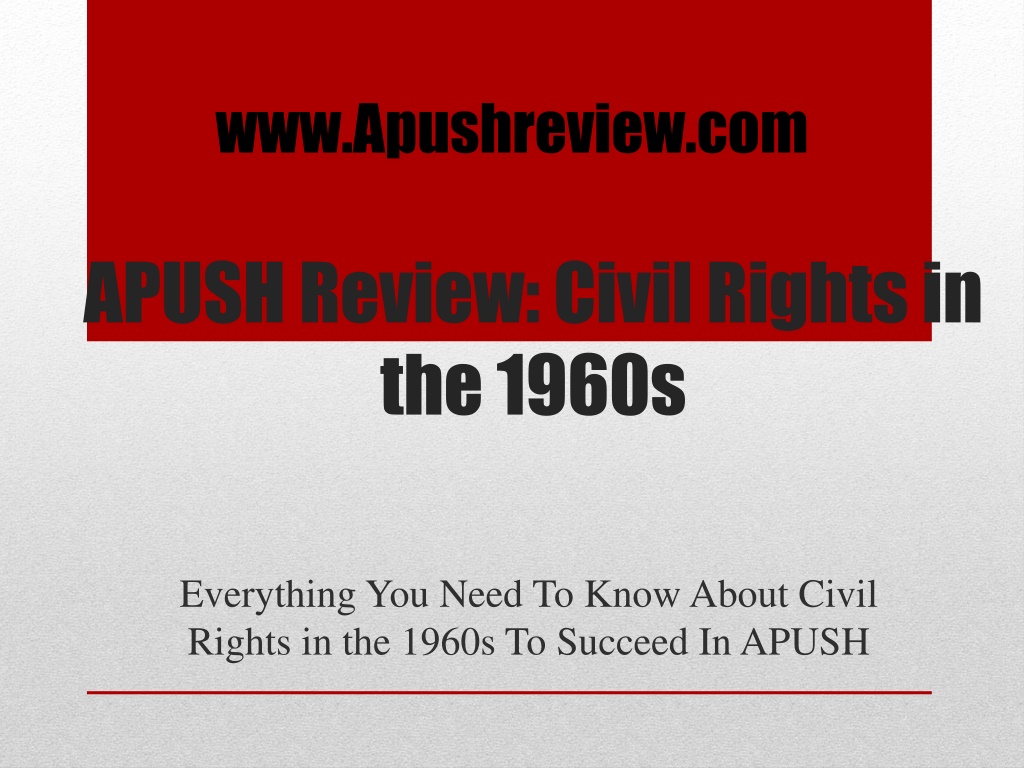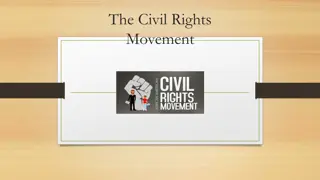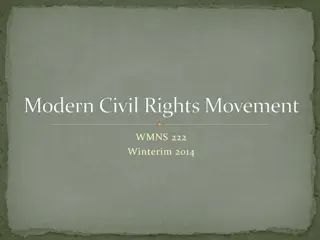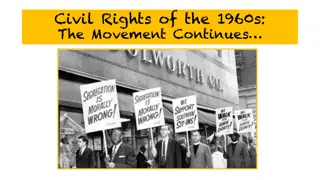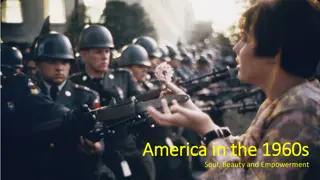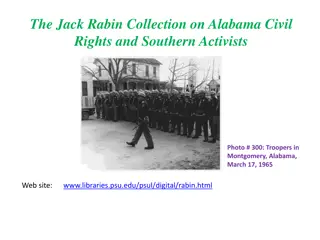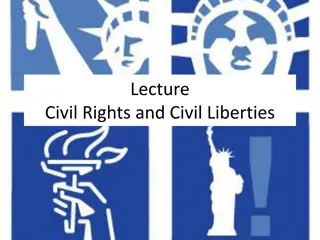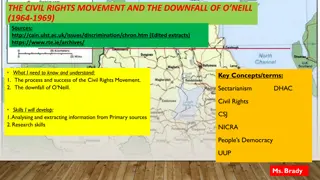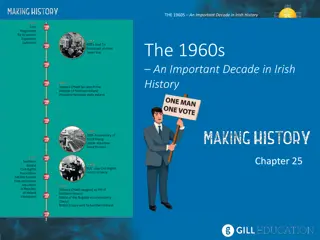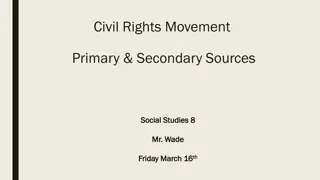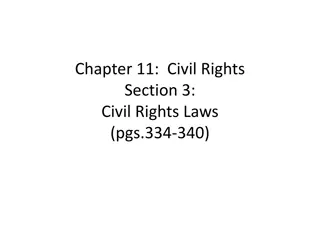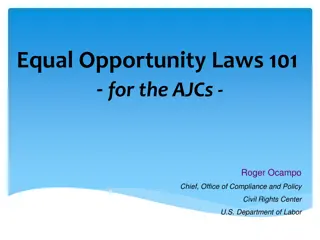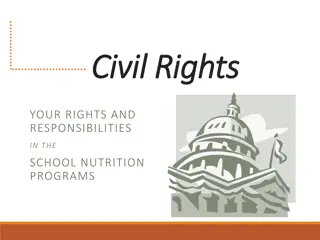Civil Rights in the 1960s: Key Events and Figures
Explore the pivotal moments of the Civil Rights movement in the 1960s, including sit-ins, Freedom Rides, the struggles at Ole Miss and Birmingham, and the impactful march in Alabama. Witness the courage and determination of activists fighting for equality and justice during this transformative era of American history.
Download Presentation

Please find below an Image/Link to download the presentation.
The content on the website is provided AS IS for your information and personal use only. It may not be sold, licensed, or shared on other websites without obtaining consent from the author. Download presentation by click this link. If you encounter any issues during the download, it is possible that the publisher has removed the file from their server.
E N D
Presentation Transcript
www.Apushreview.com APUSH Review: Civil Rights in the 1960s Everything You Need To Know About Civil Rights in the 1960s To Succeed In APUSH
Key Civil Rights Achievements Prior to 1960 Brown v. Board Little Rock Nine Montgomery Bus Boycott Check out my video, APUSH Review: Civil Rights in the 1950s
Sit-ins and Freedom Rides Greensboro, North Carolina Sit-in February 1, 1960 4 black students sat at a segregated counter of a Woolworth s 5 and Dime Store As the week progressed, more students joined in Inspired sit-ins across the country Also inspired wade-ins, kneel-ins, and bowl-ins Congress of Racial Equality (CORE) Freedom riders wanted to challenge segregation on interstate buses in the South Wanted to force the Justice Department to enforce desegregation laws Birmingham, Alabama Freedom Riders were attacked by a white mob September, 1961 ICC enforced the ban on segregation
Ole Miss and Bombingham James Meredith: 28 year old black Air Force Veteran registered at University of Mississippi 500 federal marshals were attacked by a mob when Meredith tried to enroll Kennedy ordered 30,000 troops to restore order Martin Luther King focused on Birmingham King and others were arrested for protesting Letter from a Birmingham Jail Drew on Thoreau s and Gandhi s ideas of civil disobedience an individual who breaks a law that conscience tells him is unjust, and who willingly accepts the penalty of imprisonment in order to arouse the conscience of the community over its injustice, is in reality expressing the highest respect for law. Eugene Bull Connor: Used fire hoses and dogs to break up protests The advent of TV helped spread awareness of atrocities
Alabama and a March Governor George Wallace Vowed to avoid desegregation at the University of Alabama Gave a speech prior to two black students registering Kennedy realized he could no longer negotiate the issue of civil rights Helped present the civil rights issue as a moral one Asked Congress to pass laws that support voting rights August 28, 1963: Largest civil rights protest in history (200,000 +) I have a dream
MLK and Malcolm X MLK: Civil disobedience Believed black could be American AND African Major goal was desegregation Love thy enemy Assassinated in April, 1968 Malcolm X: Born Malcolm Little, became a member of the Nation of Islam Advocated black revolution and black separatism Appealed to frustrated African Americans Assassinated in February, 1965
Key Acts and Terms Civil Rights Act of 1964: Guaranteed equal access to public accommodations Created Equal Employment Opportunity Commission Government could cut off funds where discrimination occurred Voting Rights Act of 1965: Federal government could register voters Eliminated literacy tests for voting The number of African Americans registered to vote in the South skyrocketed De Jure Discrimination: Discrimination by laws De Facto Discrimination: Discrimination by custom and tradition
Important Organizations Student Nonviolent Coordinating Committee (SNCC) Helped register blacks to vote in Mississippi (5% were registered in 1964) Later, under the leadership of Stokely Carmichael, SNCC focused on black power Black Panthers (1966): Huey Newton and Bobby Seale Advocated the arming of blacks against white police
Test Tips Essay Topics: Types of protest civil rights, wars, etc. Comparing 1950s 60s with previous time periods Tips for Multiple-Choice questions: King was influenced by Thoreau and Gandhi Good Luck!
Thanks for watching! Subscribe to my channel Help spread the word Questions? Comments? Ideas for videos? Leave in comments
